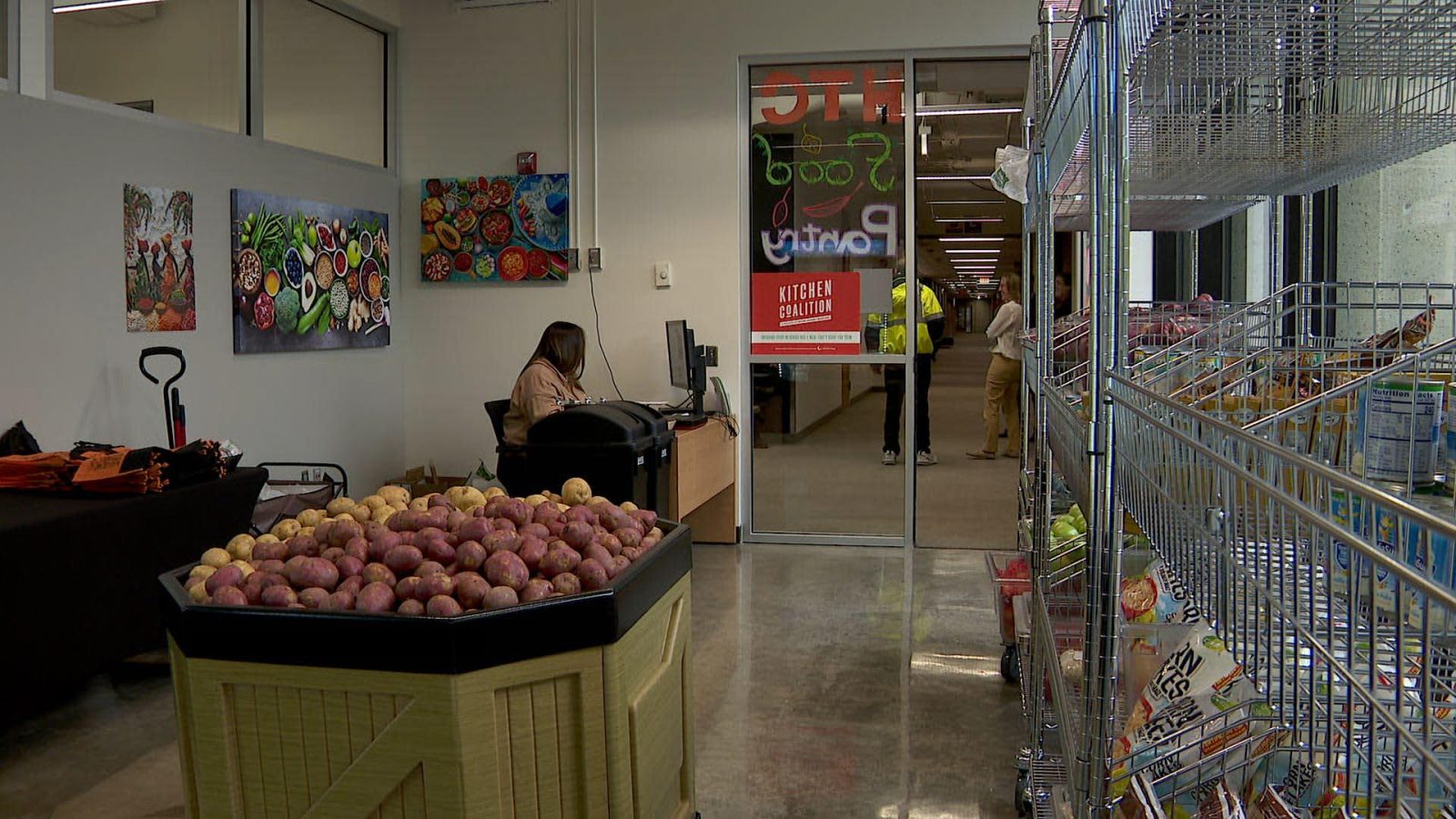Hennepin Technical College Opens Brooklyn Park Campus Food Pantry
A food pantry at Hennepin Technical College is fighting hunger due to food insecurity while fueling a hunger for knowledge.
There’s a large number of students at the Brooklyn Park campus who experience food insecurity.
“Anywhere between 25 and 46 percent of our students are what we would consider food insecure,” said Stephen Harper, director of student life at Hennepin Tech. “So that’s a student that has been challenged or was not quite sure where their next meal was going to come from, within the last 90 days … We talk a lot about how as a college student, you subsist off of ramen, and that was a normal thing. But if you think about it for more than a couple of seconds, it’s actually indicative of a big systemic problem.”
To try to meet that need, the college opened the new food pantry on Monday, Oct. 14. It’s been in the works since 2020.
” I feel great — I feel like the more people that come in, the better,” said Anna Reiman, a student worker at the pantry.

A view from inside the food pantry at Hennepin Technical College in Brooklyn Park.
The pantry is stocked with fresh vegetables, fruits and meat, as well as some canned goods and other staples.
Anyone on campus can use the pantry and bring home the free food. It’s provided by local nonprofits like Second Harvest Heartland and Good in the Hood.
Student Senate President Emmanuel Bewaji said it’s important to have a food source that’s reliable and keeps regular hours.
“This is stable, and we have supplies like every other week now, and students can just walk right in and get what they need,” he said.
It’s part of a larger effort to help students have their basic needs met.
Next to the pantry is the Student Resource Room, which offers free shoes, clothes and coats for the taking.
“Sometimes when you are new to school, you forget that, like, oops, I need to have a really great winter coat to get to and from campus,” Harper said. “And then we also get a lot of really great donations from our local community services.”
The goal is to keep students focused on their books instead of their stomachs.
“About half of students that would be hungry while they’re here at school might not actually finish their degrees, so although it seems a little outside of our box, it actually helps our students get to that finish line, get those degrees,” Harper said.


